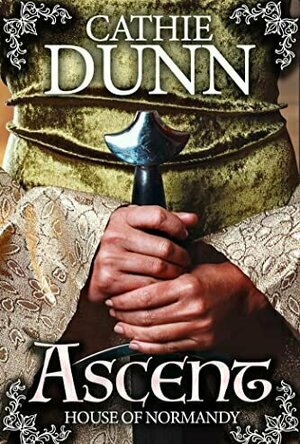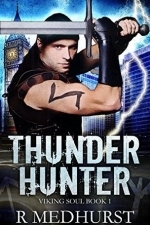AJaneClark (3975 KP) rated The Last Kingdom - Season 1 in TV
Apr 24, 2020
The first episode: Abducted by a Viking warlord after his father is slain in battle, young Uhtred adopts the Norse way of life until tragedy befalls his new family.
Episode 2: Caught between his scheming uncle Ælfric and pitiless Viking warlord Ubba, Uhtred goes on the run and seeks out Alfred, the man who would be king.
Episode 3: Uhtred allies himself with newly crowned Alfred, but his commitment to the nascent king jeopardizes his bond with Brida.
Episode 4: After Uhtred faces betrayal and falls into hostile hands, his Danish brother, Ragnar the Young, scrambles to save his life.
Episode 5: After rescuing Mildrith, Uhtred joins the fierce battle of Cynuit and vanquishes a forbidding foe, only to have Odda the Younger claim the victory.
Episode 6: Uhtred catches the eye of a lovely pagan queen, and his band of raiders becomes mercenaries for a Cornish king. But he soon faces the fury of Alfred.
Episode 7: Driven to hiding in the marshes after the Vikings invade Wessex, Uhtred and Alfred finally make amends and devise a plan for retaking the kingdom.
Episode 8: Calling upon Saxon forces to rally and drive the Vikings out of Wessex, Uhtred and Alfred gird for a decisive battle, but treachery awaits.
Season one of The Last Kingdom introduces us to a great cast, lots of action scenes and full on drama from the start. It is very well scripted with moments of humour, battle scenes, moments of heartbreak and drama. The great casting ensures that the actors and actresses are well suited to their roles.

Jim Shooter: Conversations
Jason Sacks, Eric Hoffman and Dominick Grace
Book
As an American comic book writer, editor, and businessman, Jim Shooter (b. 1952) remains among the...
Merissa (13749 KP) rated Deal With Her Dragon (Thor's Sons Crave Curves #1) in Books
Aug 2, 2020
The first thing I need to say is I love the ages of our main female. She is in her early forties - not a twenty-something whippersnapper. For the most part, Emelie is a strong and confident woman. The only time she isn't is when she is with her mother or when her coven-mates profess to know more about her situation than she does. This was annoying - mainly because so much of it struck home to me - but also added a whole layer of believability to the story!
There is some serious heat going on between Ragnarr and Emelie which made the hard part all the harder. I loved how descriptive of both main characters that part was. You could feel the despair oozing off the page from both of them.
The world-building is brilliant and I love that it's set in Sweden instead of America. The characters are all fully-dimensional, whether or not you like them is a different story. This is a complete story by itself but other brothers are mentioned.
All in all, this is a fantastic first book that introduces a world of dragons and some seriously sensual loving to the reader. Ruby Sirois' writing lets you delve into a world of Norse mythology, with scenes to melt your heart or to bring tears to your eyes. A hot and steamy novel that I highly recommend and I really can't wait to read more.
* A copy of this book was provided to me with no requirements for a review. I voluntarily read this book, and the comments here are my honest opinion. *
Merissa
Archaeolibrarian - I Dig Good Books!
Bethr1986 (305 KP) rated Ascent (House of Normandy #1) in Books
May 11, 2023 (Updated May 11, 2023)
Poppa is in church for service when her village is attacked by the Vikings, she refuses to take things lying down. She stands up for her people and tries to save the men that are being taken as slaves. One thing she is absolutely sure of is she will have nothing to do with these Norse heathens no matter what her father the Count of Bayeux insists, she would rather die! Who would or could ever find themselves loving a savage like them?
This is the story of Poppa and although it is fictional it seems to have a lot of depth to what has been written. There are little bits of history weaved within Poppa's tale and it makes it all the more interesting to read. I have enjoyed reading about the life of a count's daughter and how she deals with raids and her friends being taken as well as the life she knew and how she is able to deal with the hardships and tasks that are sent her way. When I first started reading I thought Poppa was a brat and could see us clashing, as I read further into the book I had more compassion for her and she ended up being my favourite. I could see myself reading other books like this by the same author as she has a flare for pulling you into the story and involving you.
Completely recommended
** same worded review will appear elsewhere **
* A copy of this book was provided to me with no requirements for a review. I voluntarily read this book; the comments here are my honest opinion. *
Merissa (13749 KP) rated Thunder Hunter (Viking Soul #1) in Books
Nov 6, 2017
I have to be honest, there were parts that I really enjoyed in this book, but there were also parts that I didn't like. Trygger has been by himself for a long time, and has focused only on completing his task so that he can die. Along the way, he has lost most of society's "niceties", but that doesn't stop EVERY. SINGLE. WOMAN. from throwing herself at him. Even if her job is to kill him! Sorry, but I don't get that bit. Also, he said that he never had women stay over at his place, but he has on hand a little black dress from someone he has killed just lying around!
This was an enjoyable book if you don't look to deeply at it. I'm not entirely sure where the story is going, which is a good thing, but I don't think I'll be reading any further along. If you enjoy tales of Norse mythology though, I would definitely recommend it to you.
* A copy of this book was provided to me with no requirements for a review. I voluntarily read this book, and my comments here are my honest opinion. *
Merissa
Archaeolibrarian - I Dig Good Books!

Banner Saga
Games
App
Embark on your own epic journey in Banner Saga, the critically acclaimed tactical RPG where your...

Say Ja to Hygge!: A Parody: How to Find Your Special Cosy Place
Book
'Dr Magnus Olsensen has done the decent thing. He has punctured the smug hygge bubble. He has...
Sophia (Bookwyrming Thoughts) (530 KP) rated Such Sweet Sorrow in Books
Jan 23, 2020
I personally liked Trouts version of Romeo as he journeys to Denmark in the quest to save Juliet from death - he's much more spunky, but he has his romantic elements as well that Shakespeare originally placed in him. Hamlet is just as cheeky as his original counterpart, if not more cheeky (<i>Hamlet</i> is my favorite Shakespeare play, and it's not actually because of the ending). Juliet, like Romeo, also has another side to her Trout creates - she's more badass. (<i>Romeo and Juliet</i> is my least favorite - interesting combo going on here honestly.)
But <i>Such Sweet Sorrow</i> can be overwhelming. Trout doesn't just have <i>Hamlet</i> mashed with <i>Romeo and Juliet</i> - she's got Norse mythology and Greek mythology and who knows what else (some reviewers on Goodreads say anything you can think of... Essentially). Regardless, there is definitely a mess of things going on throughout and I just decided to go with it rather than question the book in its entirety (like what other mythological aspects are involved).
For the first half of the book, Romeo and Hamlet are, for the most part, wandering around cluelessly through this place called the Afterjord - it can get boring pretty quickly, but there is so much going on with the creatures they come across, it's not actually boring (I'm too busy trying to keep track of what's going on so I'm not lost). <i>Such Sweet Sorrow </i>doesn't actually pick up until after Romeo and Hamlet finally rescue Juliet and try to make their way back to the mortal world.
But while there is so much going on throughout, I actually liked this strange little book in all its weird complexities. However...
I'm disappointed that a cliffhanger is involved and nowhere on Goodreads does it say <i>Such Sweet Sorrow</i> has a sequel in the works.
<a href="https://bookwyrmingthoughts.com/arc-review-such-sweet-sorrow-by-jenny-trou/"; target="_blank">This review was originally posted on Bookwyrming Thoughts</a>

Yoga Mudras
Health & Fitness and Lifestyle
App
Yoga Mudras - Hand Gestures for Energy Flow, Wellness and enhanced Perception. BACKGROUND Mudras...

Murder at Sea
Book
Fear naut, the next Destinations Murder collection is here: Murder at Sea. Third in this...




